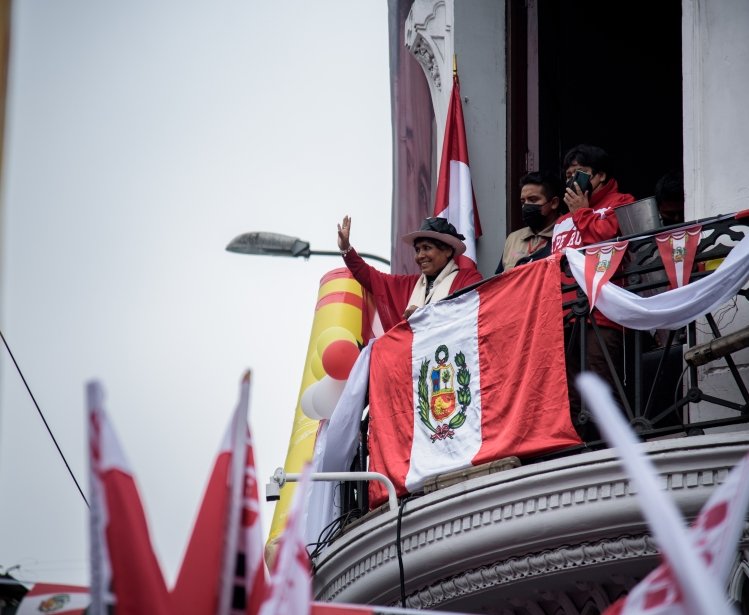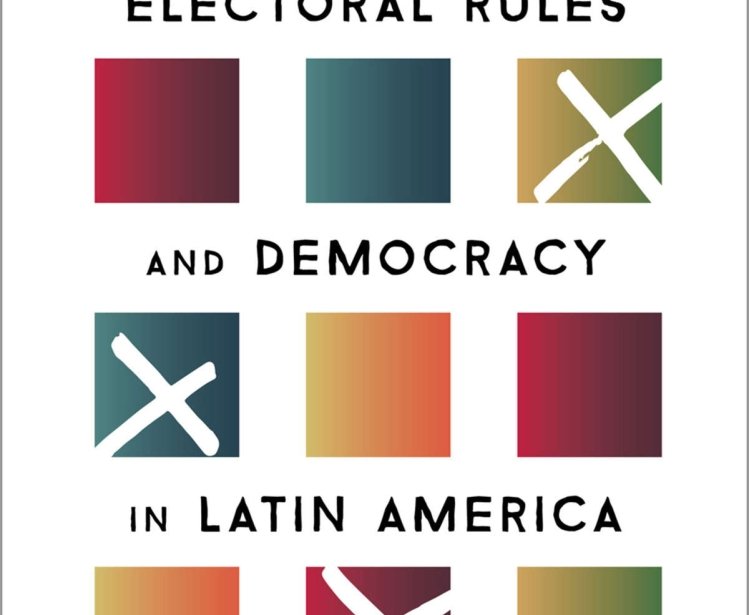Cynthia McClintock
Professional affiliation
Wilson Center Projects
"The Majority Runoff Presidential-Election Rule in Latin America"
Full Biography
From my undergraduate education to my current project, there have been twists and turns in my intellectual trajectory. However, like most scholars, since my dissertation research I have sought to contribute to knowledge through studies for which I have a base of expertise and which, hopefully, help resolve important concerns in the specific countries at the time. As an undergraduate at Harvard University, I majored in English. But, as a junior, I was captivated by political science courses and liked the prospects for contribution to policy debates that I would have as a political scientist. Pursuing my M.A. at UCLA, I decided to focus on the comparative politics of developing countries; I believed that knowledge about these countries was relatively scant and the possibility of a scholarly contribution greater. It was only as a Ph.D. candidate at MIT that I decided to specialize in Latin American politics. In contrast to most of my peers, at that time I had had no personal experience in Latin America. I reasoned that Latin America, while a developing area, was not as different from the United States as other developing regions, and that, as a single woman, I would be able to effectively carry out research there. I also liked the fact that, with command of only one language, scholars of Latin America can do research in almost all countries of the region. I was embarking on my dissertation research in the early 1970s, a period of intense political ferment. One of the key debates in comparative politics was to what extent political values might change. I decided to try to contribute to this debate through a study of the impact of newly established agrarian cooperatives on the attitudes and behavior of peasants, and secured a fellowship from the Social Science Research Council. I hoped to carry this study out in Chile, but on my arrival in March 1973 I realized that a military coup was likely, and shifted my focus to Peru. I was very fortunate that pre-reform survey data were available both for sites in Peru that had become cooperatives and others that had not, and that my research team and I were able to live in three different cooperatives for several months. Ultimately, in my book Peasant Cooperatives and Political Change in Peru, I concluded that, within the new cooperatives, more participatory and collaborative values were evident. In the early 1980s, the Shining Path insurgency took root in Peru's southern highlands. Having carried out research on agrarian cooperatives in Peru's central highlands, I had colleagues and friends with first-hand knowledge of the movement. My scholarly attention turned to the origins of the Shining Path and what Peru's experience had to say for theories of revolution. As the insurgency intensified through the decade, my interest continued, and I secured a U.S. Institute of Peace Fellowship for a study comparing and contrasting the origins of the Shining Path and the revolutionary movement in El Salvador, the FMLN. In my 1998 book, I argued that the sine qua non of the conflict in El Salvador was political exclusion, but the sine qua non of the conflict in Peru economic plummet. In 1992, the leader of the Shining Path was captured and within a few years the movement was decimated. My interest turned to analysis of the taming of the insurgency, and I was happy to contribute a chapter to a book edited by the Wilson Center's Cynthia Arnson, Comparative Peace Processes in Latin America. Just last year, I was delighted to work with Cindy again, contributing a chapter on the Peruvian experience to her co-edited book with I. William Zartman, Rethinking the Economics of War: The Intersection of Need, Creed, and Greed. From 1990 through November 2000, Peru's government was led by Alberto Fujimori. Although Fujimori had been elected in 1990 and was re-elected in 1995, he had closed Peru's congress in 1992 and by the late 1990s was considered an authoritarian leader by the vast majority of Peruvian analysts. I was asked by Jorge Dominguez and Mexico's Rafael Fernandez de Castro to co-author the book on the United States and Peru for their series on the bilateral relationships between the United States and some nine Latin American countries in the post-Cold War era, and I became very interested in the question of the test for U.S. policy priorities represented by a government that was cooperating closely with the U.S. on security threats, free-market reform, and narcotics control—but not democracy. The book argues that, in its recognition of the 2000 elections stolen by Fujimori, the U.S. government compromised democratic principles, in part because of its pleasure with the government's policies and in part because of the lack of clear criteria for electoral-authoritarian regimes. Throughout my research and teaching, I have been interested in the capacity of Latin America's democratic governments to survive, to represent their diverse citizenries, and govern well. When I was a Ph.D. candidate in Chile in 1973, I wondered whether a runoff rule might have made a difference to the country's 1970 elections and reduced the possibility of a military coup. Since 1978, as most Latin American nations became democratic, debates about appropriate constitutional rules have become intense. In the mid-1990s, while I was writing the chapter about Peru for the volume The Failure of Presidential Democracy co-edited by Juan Linz and Arturo Valenzuela, Dr. Valenzuela and I had several fascinating discussions about runoff rules. More recently, in Venezuela in 2005, I met with several political analysts who favored runoff rules for Venezuela. They argued that, elected with a relatively small plurality, President Rafael Caldera had had little legitimacy, exacerbating the difficulties of the country's traditional political parties in the 1990s, and that, in the country's 2006 elections, a runoff could be a kind of primary, enabling Venezuela's divided opposition parties to unite behind the most viable opposition candidate—a candidate who, in a two-round system, might be able to win even if he or she were a relatively unknown "outsider." I decided that the scholarly literature about plurality versus runoff rules was not sufficiently sensitive to the considerable variety of circumstances in Latin America and that I would like to try to contribute to this debate.
Education
B.A., (1967) cum laude, English, Harvard University; M.A. (1968) Political Science, University of California at Los Angeles; Ph.D. (1976) Political Science, Massachusetts Institute of Technology
Subjects
Latin America,Peru
Experience
- Professor of Political Science, The George Washington University, 1988-present
- President, Latin American Studies Association, 1994-95
- U.S. Institute of Peace, Jennings Randolph Peace Fellow, 1990-91
- Associate Professor of Political Science, The George Washington University, 1982-88
- Fulbright Lecturer/Researcher, Fall Semester 1987
- Assistant Professor of Political Science, The George Washington University, 1976-82
- Instructor of Political Science, The George Washington University, 1975-76
Expertise
Latin American politics; U.S.-Latin American relations; Peruvian politics
Major Publications
- The United States and Peru: Cooperation--at a Cost, with Fabiàn Vallas (Routledge Press, 2003)
- Revolutionary Movements in Latin America: El Salvador's FMLN and Peru's Shining Path (U.S. Institute of Peace Press, 1998)
- Peasant Cooperatives and Political Change in Peru (Princeton University Press, 1981)




